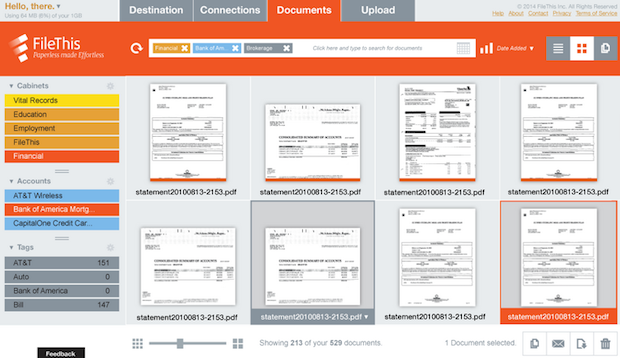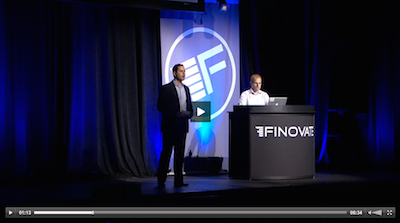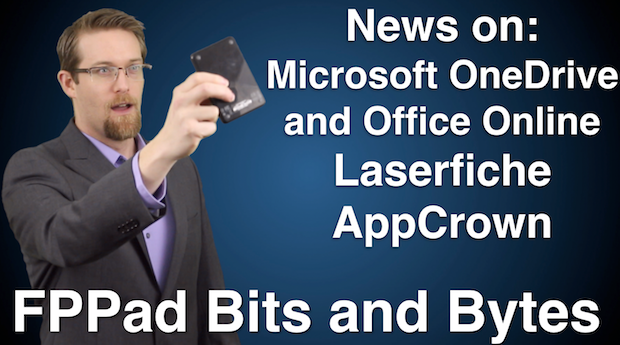On today’s broadcast, cybersecurity takes center stage at FINRA and the SEC, what you need to do to protect your business from attacks. Amazon launches its cloud desktop service to the public. Does this mark the end of plain old desktop in your business? And two growing providers form a new joint venture to take your portfolio management efficiency to the next level.
So get ready, FPPad Bits and Bytes begins now.
(Watch FPPad Bits and Bytes on YouTube)
Today’s episode is brought to you by Orion Advisor Services, the nation’s largest privately held portfolio accounting service bureau.

Providing full-service data reconciliation, advisory fee billing, Salesforce integration, mobile apps and more, Orion believes it’s time for you to enjoy your business again. Visit fppad.com/orion for more information.
Here are the links to this week’s top stories:
Top Cybersecurity Threats for BDs, Advisors from ThinkAdvisor, and
SEC Cybersecurity Roundtable Webcast from SEC.gov
[Leading off today’s broadcast is an update from FINRA and the SEC highlighting cybersecurity threats faced by advisors and broker-dealers. In a roundtable event held in Washington DC this week, regulators and industry representatives acknowledged that the number one cybersecurity threat to firms of all sizes is the unauthorized account takeover.
This happens when a hacker compromises an investor’s username and password credentials, or manages to take control of an investor’s email account. The hacker then proceeds to liquidate holdings and transfer money to outside accounts, or even poses as a client with a convincing story to get advisors to transfer funds to an outside account, a clever tactic known as spoofing.
Both FINRA and the SEC acknowledge they must play a role in this area, but neither provided details on what exactly that role should be, and if any advisor exams are to include cybersecurity audits, they are likely to start in the fall of 2014 at best.
Until then, here’s what I recommend you do: First, update your compliance manual with policies for what you do when faced with a cybersecurity attack.
Second, train everyone in your organization so they’re familiar with the common tactics from hackers, including phishing, spoofing, and reverse social engineering. And finally, invest in technology to boost your security, like activating multi-factor authentication, deploying firewalls, and even using phishing simulation software that I highlighted in episode number 115.] The top risks broker-dealers face in dealing with cybersecurity threats are operational risk, “insider” risks posed by rogue employees and hackers penetrating BD systems, Daniel Sibears of the Financial Industry Regulatory Authority said Wednesday at the Securities and Exchange Commission’s cybersecurity roundtable.
Amazon WorkSpaces, Amazon’s Cloud Desktop Service, Launches To Public Along With New Sync Client from TechCrunch, and
Amazon WorkSpaces from Amazon
[Next up is news from Amazon, as the company announced the general release of its virtual desktop solution to the public called WorkSpaces.
WorkSpaces is squarely aimed to take on other virtual desktop providers like Citrix, VMWare, and Microsoft, and with pricing ranging from $35 to $75 per month for each user, WorkSpaces is roughly half the price of the competition. If you’re looking to get rid of your aging server and move all of your core software to the cloud, Amazon WorkSpaces just became a very compelling option.
Plus, with the introduction of a new WorkSpace Sync application, you can backup and synchronize up to 10GB of documents between your WorkSpaces, the Amazon Simple Storage Service, and even your local desktop computer. This gives you a secure and reliable document storage alternative to consumer services like Dropbox, Box, Google Drive, and Microsoft OneDrive that you might be using today.] Amazon WorkSpaces, the company’s virtual desktop computing environment introduced last fall at the AWS re:Invent conference, is today available to the public.
Orion Advisor Services, LLC and Total Rebalance Expert (TRX) Form Joint Venture; Announce Technology Integration from PRNewswire.com
[And finally, two popular providers in portfolio management and rebalancing software, Orion Advisor Services and Total Rebalance Expert, announced a new joint venture this week called the “Total Technology Platform.”
The two companies first integrated their solutions back in October of 2012, enabling the import of account, transaction, and tax lot data from Orion directly into TRX with a single click.
But this latest venture goes beyond bidirectional integration, as users of Orion will now be able to access TRX directly from within the Orion platform. At the same time, both companies said they are committed to maintaining open-architecture platforms rather than hold advisors captive to one bundled solution.
Orion users can still take advantage of integrations with Blaze Portfolio, iRebal from TD Ameritrade Institutional, and Rebalance Express from RedBlack Software, and TRX users can continue to import data from Morningstar Office, Portfolio Center from Schwab Performance Technologies®, Advent’s Black Diamond Performance Reporting and more.] Total Rebalance Expert (TRX) and Orion Advisor Services, LLC (Orion) announced today a joint venture between the two companies to provide a “Total Technology Platform” designed to simplify and streamline the portfolio management process.
Here are stories that didn’t make this week’s broadcast:
Box Unveils First Standalone Product And New API Pricing At Inaugural Dev Conference from TechCrunch
New Kitces Network to Target Planners for Gen X & Y from Financial Planning
Office 2 HD for iPad is now Citrix ShareFile QuickEdit, drops $7.99 price to become free via iTunes

Watch FPPad Bits and Bytes for March 28, 2014














